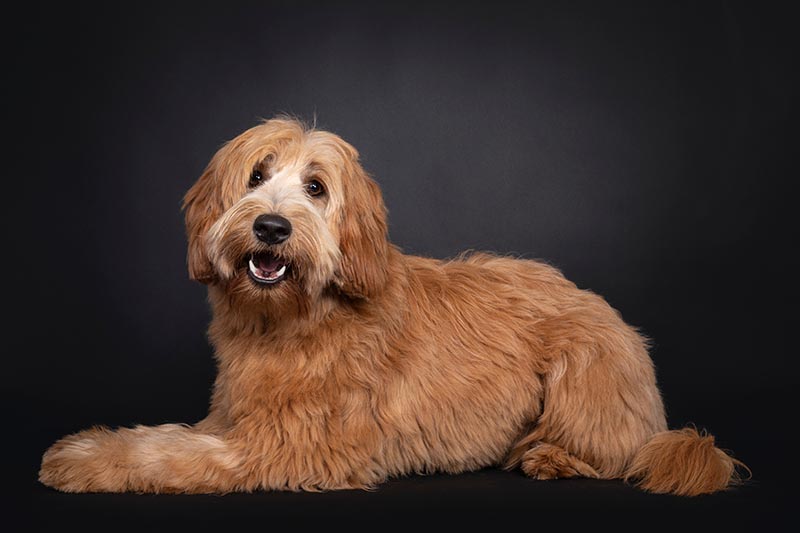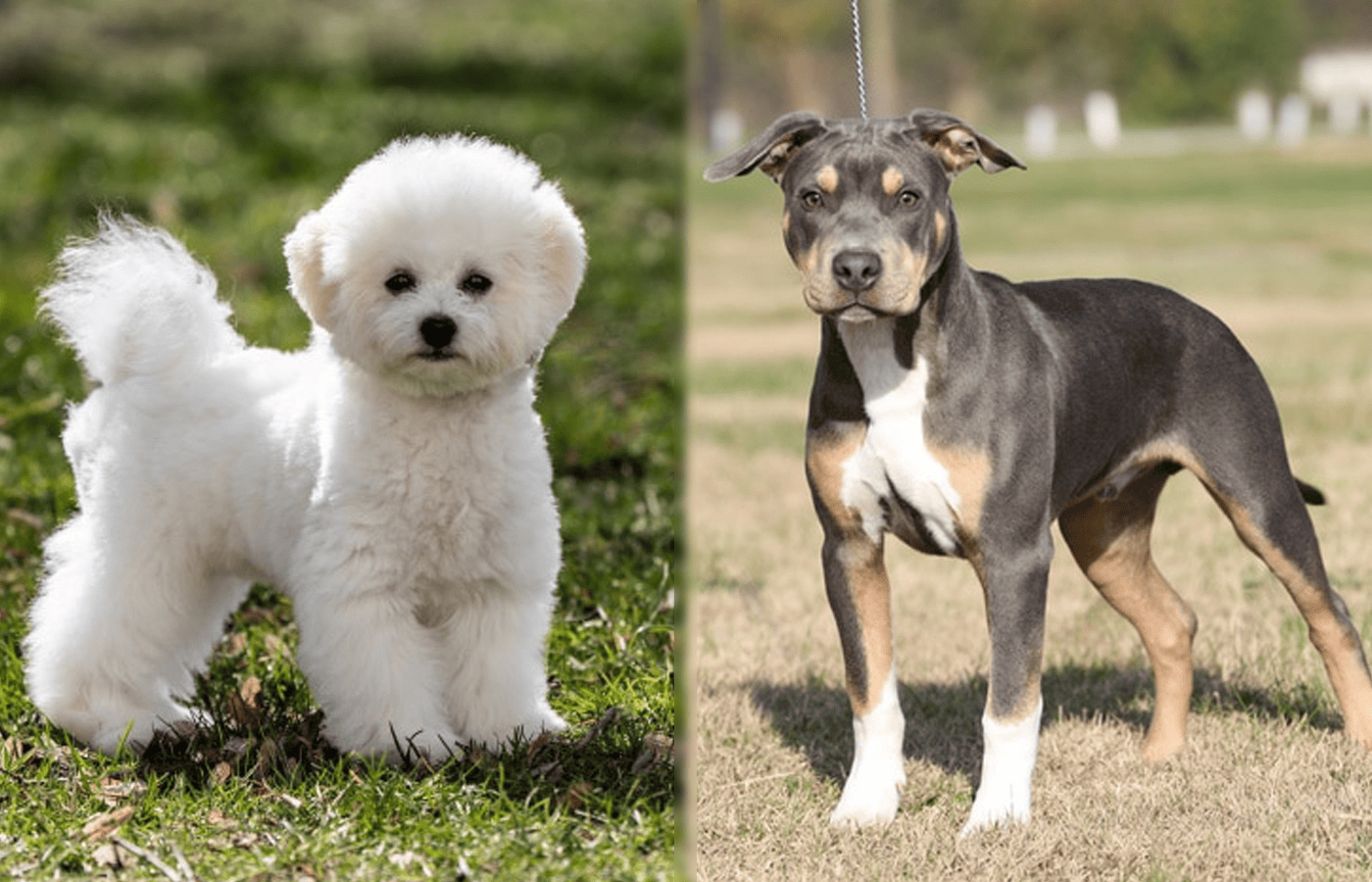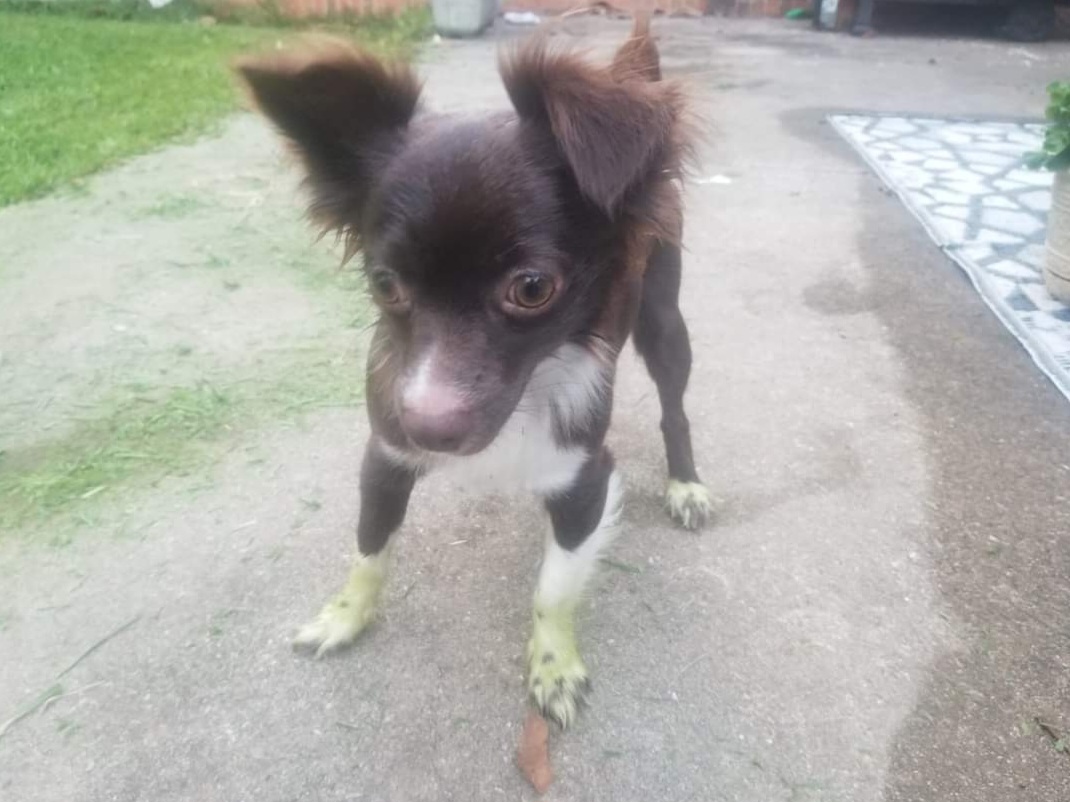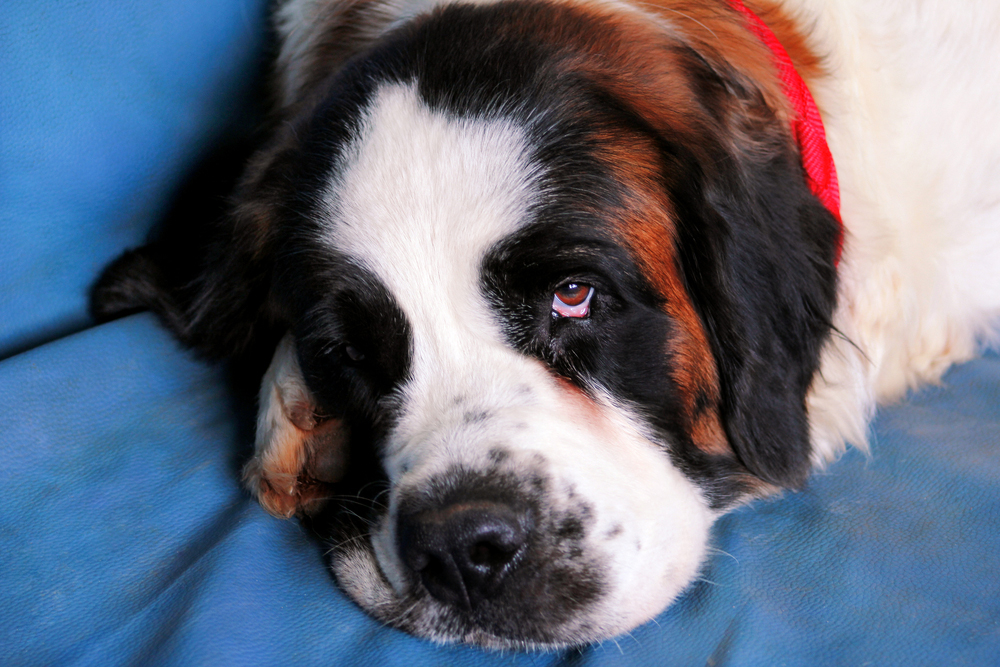Click to Skip Ahead
Labradoodles have gained popularity over the years, and it’s no wonder why! You take the Labrador Retriever, one of the top three most popular dogs according to the AKC, and give it added brains and hypoallergenic qualities of the Poodle— and voila! Who wouldn’t want to welcome one into the home?
The Apricot Labradoodle is one of the colors breeders achieve during breeding. It is a gorgeous tone that accentuates the features of this adorable pup. But where exactly did the color originate? Has it been in the gene pool the whole time or developed slowly with specialized breeding?
Breed Overview
Height:
22–24 inches
Weight:
40–55 pounds
Lifespan:
12–15 years
Colors:
Apricot
Suitable for:
Mild to moderate allergies, growing families
Temperament:
Excitable, loyal, amiable
The Apricot Labradoodle sports a lovely, rusty color with normal frills and curls. While the Apricot Labradoodle is not a breed on its own, it is rather one of the most sought-after coat colors found in the breed.
Apricot comes through as a lighter version of red. Red is already considered the rarest color, making the Apricot twice as unique. So, don’t be surprised if these puppies are more expensive or if you have a harder time finding one for sale.
Apricot Labradoodle Characteristics
The Earliest Records of Apricot Labradoodles in History
The term “Labradoodle” was originally coined by Donald Campbell in 1955. He used this expression to describe his Poodle/Lab cross at the time.
However, it wasn’t common to hear of this breed taking on service roles, like being a guide or emotional support animal, until roughly 1989. Wally Conron bred these two breeds together to create a guide dog for a woman whose husband was allergic to dogs, and the Labradoodle breed has continued to be developed since then.
Since these dogs are hybrid breeds, they’re much less regulated, and therefore you have to be careful with different breeders. They may not be held to the same standards as purebreds.
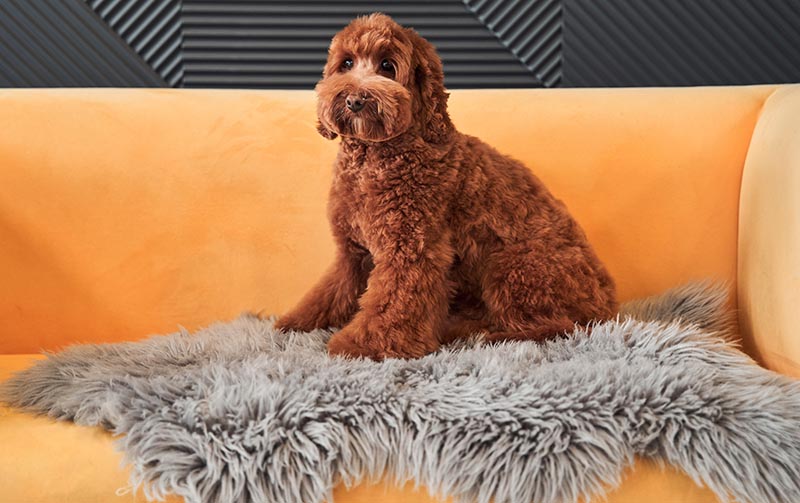
How the Apricot Labradoodle Gained Popularity
Since the Apricot Labradoodle is so rare, they are highly attractive to potential buyers. Since it’s a coat color you don’t see every day, more folks are willing to wait for potential puppies to get the coat color they want.
Labradoodles, as a whole, gain popularity for obvious reasons. They are hypoallergenic, they are extremely social with families, and they make wonderful all-around pets. These dogs, with proper training, tend to acclimate very well into families.
Often, allergy sufferers might really like a specific dog breed but never be able to enjoy them in their own home due to their allergies. If someone really loved Labs but not the sneezes that came along with it, getting a Labradoodle allows them to have the Labs they love.
Formal Recognition of Apricot Labradoodles
Labradoodles are considered designer dogs. This hybrid breed is not recognized formally by the AKC. However, in Australia, the Labradoodle is highly regulated—with Australian guidelines to go by in terms of offspring.
Despite formal recognition, breeders should hold their own pups to quality standards. Each litter should be properly vetted, including vaccinations, microchipping, and general care. Breeders still charge a hefty price tag for these dogs, sometimes upward of $2,500.
Researching reputable breeders when buying the Labradoodle, no matter what color you choose, is significant. Buying from responsible breeders ensures your puppy is of high quality. Since this is such a rare color, be understanding if you need to wait or travel to obtain one.
It is unclear whether the AKC will ever standardize hybrid dogs. And as of this time, the Labradoodle, along with several other crosses, is not recognized by formal associations.
Top 5 Unique Facts About the Apricot Labradoodle
Here are some astonishing facts about Labradoodles to better understand what they’re like as a breed. Since the apricot color falls into the mix, here are fun facts about Labradoodles in general.
1. Labradoodles Are Often Tasked as Service Dogs
Labradoodles are highly desirable for service roles. These dogs have the temperament, intelligence, and trainability to make them excellent candidates to take on the task. Labradoodles make terrific guide dogs, emotional support animals, and diabetic dogs.
Some of these roles require extensive training. So if you find an Apricot Labradoodle fully trained for a specific task, you can expect to pay several thousand dollars.
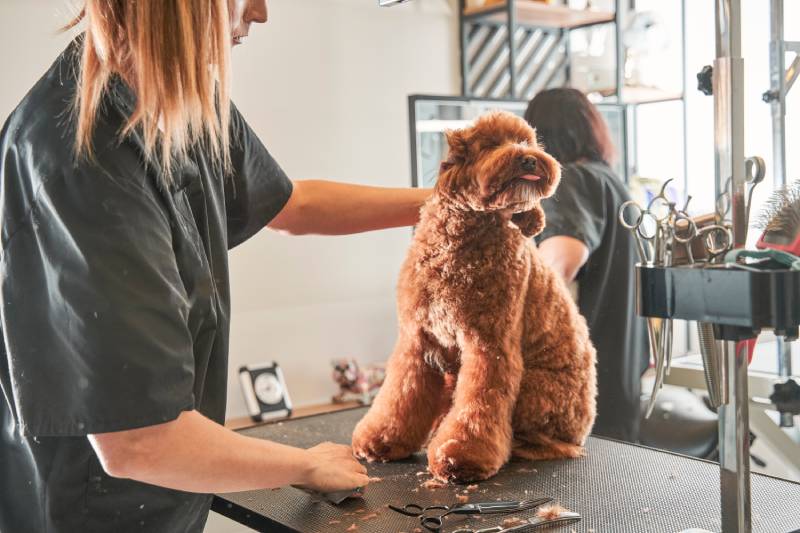
2. Red Labradoodles Are the Hardest to Breed
Red is a recessive color in the Labradoodle gene pool. That means it’s often skipped over by stronger genetics that come through in the litter. Red can come through in all sorts of tones, leaving no two exactly the same.
It can be on one extreme of the spectrum, closer to a deep, rusty red color. It can also be nearly cream. The Apricot and Apricot Cream coat colors also fall into this category since they are both dilutions of the standard red.
3. There Are Many Other Coat Colors Outside of Apricot
Since the Labradoodle can carry traits from either parent, you have a whirlwind of coat color possibilities.
- Chocolate
- Café
- Parchment
- Caramel
- Apricot
- Apricot Cream
- Raven Black
- Light Blue
- Parti
- Phantom
Even though these are established collars, they can have variations. You can see Labradoodles in all sorts of beautiful tones, making each one unique and adorable in its own right.
4. The Labradoodle Can Suffer from a Few Health Issues
Like any other dog breed, Labradoodles can suffer from their own ailments. Many of these issues are genetic and, therefore, can be controlled with reputable breeding. However, it’s still nice to be aware of the potential problems you could face when owning one of these wonderful dogs.
- Hip dysplasia
- Progressive retinal atrophy
- Von Willebrand’s disease
- Addison’s disease
Most of the time, Labradoodles are healthy and fit. It’s up to us to utilize the proper environment, diet, and vetting schedule to promote optimal health in our pets.
5. Labradoodles Were Used in the Entertainment Industry
Fang, a Labradoodle, had a recurring role on the hit show Get Smart in 1965. Fang was much-loved when he took the limelight. He was always in good spirits, charming audiences all over.
Looks-wise, Fang might be slightly different from the Labradoodles you see today, but he remains one of the most adorable!
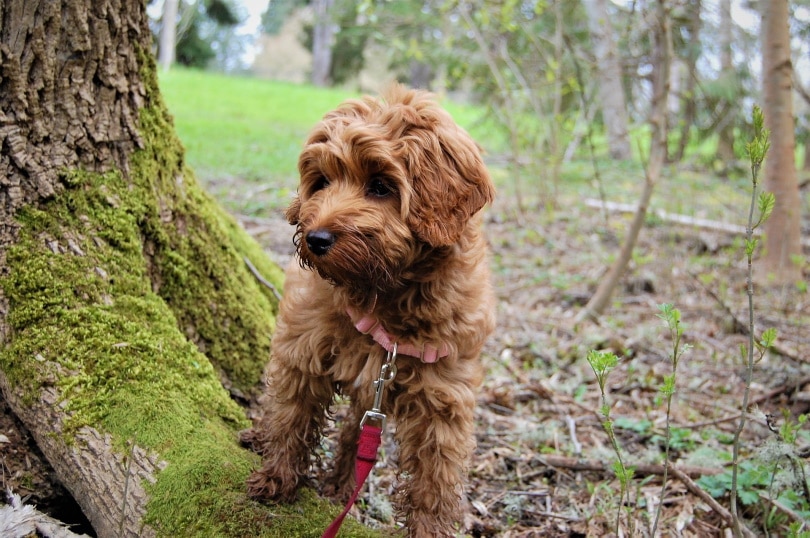
Does an Apricot Labradoodle Make a Good Pet?
The Labradoodle makes an excellent quality dog no matter what color they are. Coat color does not influence temperament, so your expectations should be the same. Labradoodles are incredibly friendly and love being part of the family.
They can simply be a family companion or become skilled service dogs with the appropriate training. Since they are so intelligent and easy to work with, it makes some excellent candidates for the roles.
Labradoodles generally get along very well with other pets, primarily when they are raised alongside them. However, they were originally bred for hunting, so they could have a higher prey drive. This characteristic might make them incompatible with farm animals and some small pets.
Like any other dog, Labradoodles have to be well-socialized and appropriately trained to live up to their fullest potential. A Labradoodle might develop nervous or destructive behavioral tendencies.
Conclusion
Now that you know a little bit more about the Apricot Labradoodle, you can understand why you might see higher price tags and lower availability. This coat color is something special, so prepare to be on long waiting lists to get one in some cases.
Always look for reputable breeders that have a history of quality litters. Steer clear of backyard breeding since these dogs are much harder to regulate.
- Related Read: 17 Labradoodle Colors and Patterns (with Pictures)
Featured Image Credit: Nynke van Holten, Shutterstock

